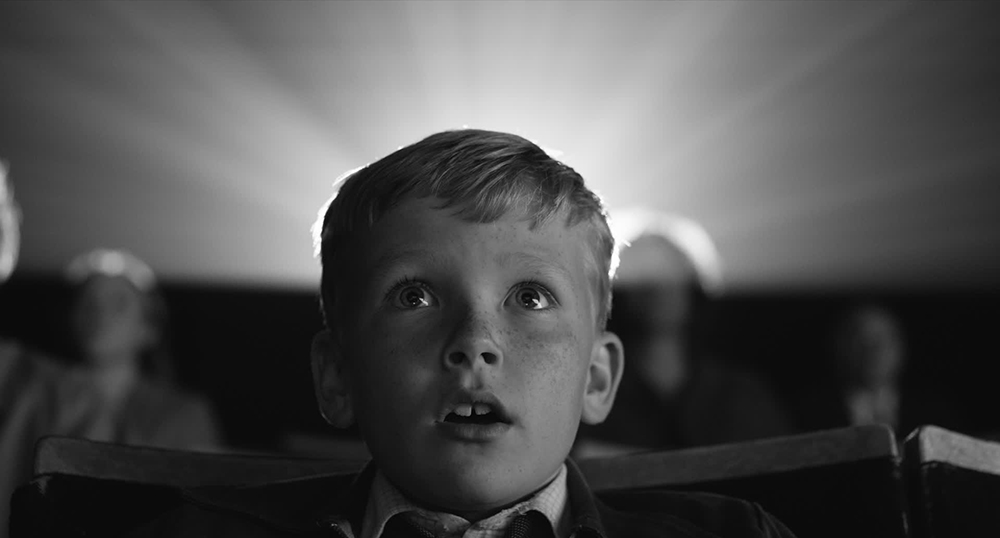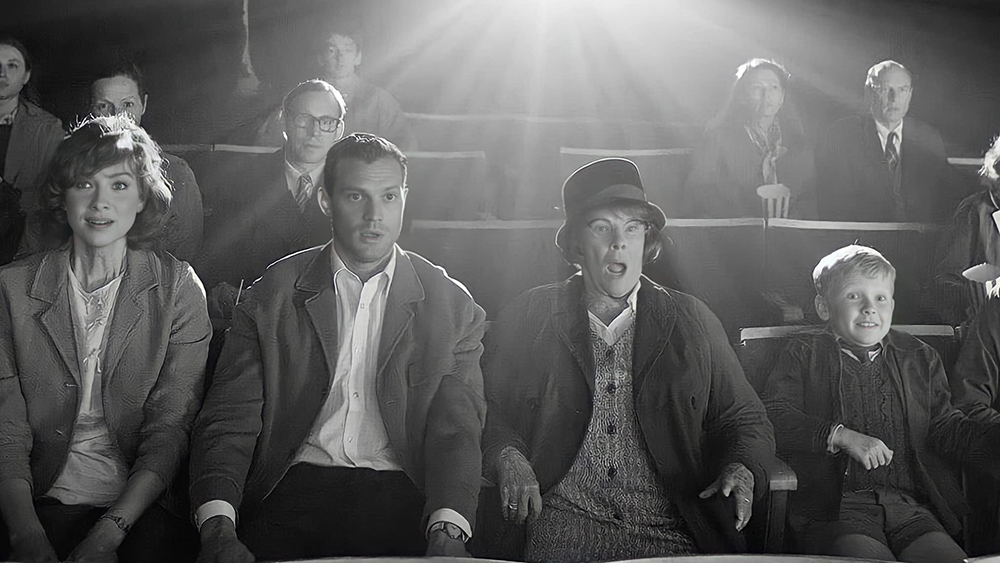Belfast begins in August 1969 with a boy’s-eye view of the beginning of the Troubles. For almost 30 years, the largely Protestant Unionists, who wanted Northern Ireland to remain a part of the United Kingdom, fought the largely Catholic Irish Nationalists, who wanted to unite with the Republic of Ireland, which had broken away from the UK in 1921.
Director Kenneth Branagh, who wrote the script based on his own memories of growing up in the impoverished Irish city, immediately puts the audience in the point of view of Buddy (Jude Hill), a 9-year-old kid obsessed with movies, whom we meet running around the city streets with a wooden sword and trash can lid shield. But his fantasies of heroic conflict run headlong into a real riot.
The specifics of the Troubles are complex, with decades shifting allegiances between paramilitary groups and the various governments with interests in the outcome. But for Buddy and his family, it’s simple enough. Both Catholics and Protestants live in the brown row houses of their street in Belfast, and the Ulster Protestants, of whom Buddy’s family are ostensible members, want the Catholics gone. The fighting escalates when British troops arrive. Branagh depicts the running street battle at kid level, highlighting the little details that jump out at the easily distracted Buddy, like the sewer grates the rioters pick up to throw through windows and close-ups of tank treads glimpsed from shuttered windows.

Buddy and his older brother Will (Lewis McAskie) are mostly alone with their Ma (Caitriona Balfe) while their Pa (Jamie Dornan) works in London. The unemployment rate in Belfast, a television news announcer tells us, is the highest in Europe, and it is gradually revealed that the family’s finances are under even more pressure because Pa didn’t pay his taxes and now Her Majesty’s Government has come to collect. “Why do you cry when the mail comes?” Buddy asks his Ma.
The semi-long-distance relationship is taking its toll on Ma and Pa, but Buddy gets plenty of love from his kindly but cantankerous grandparents, played by Judi Dench and Ciarán Hinds. Buddy is largely clueless to all the conflicts and struggles, instead focusing mostly on his dreams of becoming a football star and acing his schoolwork so he can sit close to Catherine (Olive Tennant), the blonde teacher’s pet he’s crushing on. He gets used to walking through the barricades manned by militiamen bearing guns and clipboards, trying to enforce religious segregation. But the Troubles come for everyone in the end. Pa, caught up in his own troubles, thinks religion is silly and has no stomach for street violence. But small-time gangster turned local Ulster militia leader Billy (Colin Morgan) won’t take no for an answer and turns up the pressure on the family to choose sides. With Grandpa ailing, Pa contemplates the unthinkable: leaving Belfast for the greener pastures of London, where the Troubles can’t reach them.
Branagh’s long and fruitful career as a director has gone from the supernatural thriller Dead Again to Shakespeare adaptations to the first Thor movie. Even now, as Belfast is poised to make a splash in one of the most competitive Oscar seasons in recent memory, his adaptation of Agatha Christie’s Death on the Nile is also in theaters. The performances, as you would expect from someone who now has a theater troupe named after him, are all solid. Hill, who was actually 10 when Belfast was filmed, shows exceptional range, from the wide-eyed wonder he displays while watching a stage performance of A Christmas Carol to the screaming fit he throws when he hears they might have to leave Belfast.
The black-and-white photography owes a lot to another auteurist autobiography, Alfonso Cuarón’s Roma. But when Buddy and the family go to the theater, the film bursts into color. Branagh chooses Buddy’s films and TV shows judiciously to reinforce his themes. When the sectarian hatred outside reaches a fever pitch, Buddy retreats to the egalitarian utopia of Star Trek. When his father must make a choice to fight or flee, they watch High Noon. But the film clips also telegraph Belfast’s swerve into maudlin nostalgia, as when the director outs himself as a Chitty Chitty Bang Bang superfan. Belfast is conventionally constructed and terminally nostalgic, but the cast and crew’s heart is in it, and sometimes, that’s enough.
Now playing at Forest Hill Cinema Grill and available to stream online
